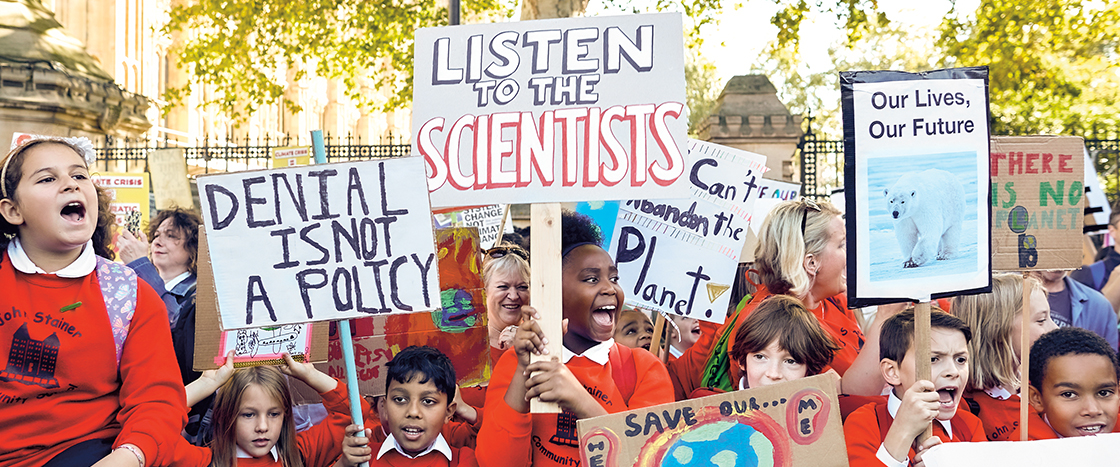September 20, 2019, was no ordinary weekday. Thousands of kids around the world took to the streets. They held signs with messages like “There’s no Planet B” and “If you don’t act like adults, we will.”
These demonstrations, known as the Global Climate Strikes, drew an estimated 4 million people in more than 150 countries. Their goal was to bring attention to climate change. As Earth’s global temperature goes up, sea levels are rising and weather events are becoming more extreme. Protesting is one of many ways young people are raising their voices to protect the planet.
Alexandria Villaseñor is a 14-year-old student who has been protesting every Friday for the past 16 months in New York City. She hopes world leaders are paying attention. “We will continue protesting until they listen to us,” she says.
September 20, 2019, was no ordinary weekday. Thousands of kids around the world took to the streets. They held signs with messages. Some read, “There’s no Planet B.” Others said, “If you don’t act like adults, we will.”
These marches were known as the Global Climate Strikes. They were held in more than 150 countries. They drew about 4 million people. The strikes’ goal was to bring attention to climate change. Earth’s global temperature is heating up. That’s causing sea levels to rise. It’s causing weather to become more extreme. Young people are marching to protect the planet. It’s one of many ways they’re raising their voices.
Alexandria Villaseñor is a 14-year-old student. She lives in New York City. She’s been protesting every Friday. She’s done so for the past 16 months. She hopes world leaders are paying attention. “We will continue protesting until they listen to us,” she says.

